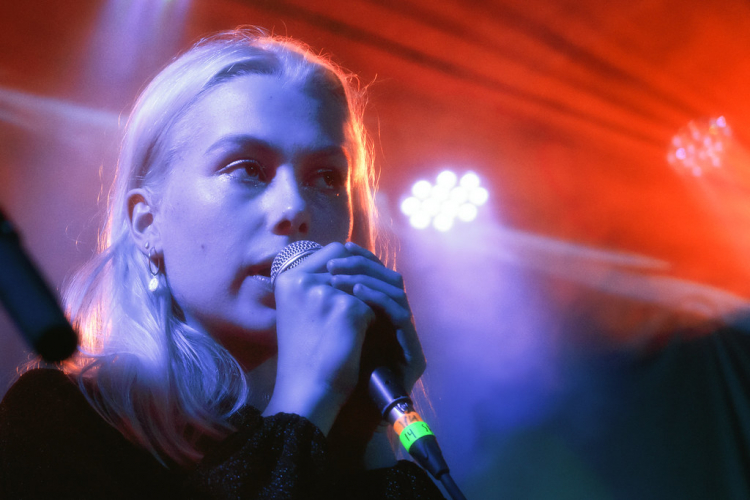In My Feels

“What if I told you I feel like I know you? But we never met – it’s for the best,” croons Phoebe Bridgers in the title track to her 2020 sophomore album, “Punisher”. Fans of the artist know her for her heart-wrenching, melancholy ballads and lyrics. I became acquainted with Bridgers’ work during quarantine; I was familiar with her breakout song “Motion Sickness”, (from her debut album “Stranger in the Alps”) and quarantine boredom allowed me to become fully entranced in her haunting music. While the state of the world is in relative chaos, one might think that listening to such sad music might egg on more of these negative emotions. But these songs felt comforting, even therapeutic and I began to listen to more artists releasing music in the same vein -- Mitski is just one artist that immediately comes to mind when it comes to these dismal tunes -- I realized that many of my friends and those I came across on social media harbored the same attitude towards these singers. Why do we enjoy listening to such sad music? And what effect does it have on us while listening to it in today’s societal context?
Multiple studies have been conducted on the effects of sad music and its psychological and biological impacts. According to a report from Psychology Today, our enjoyment of sad music can come from a combination of various factors like nostalgia, mood regulation and vicarious emotion -- as in, sad music allows us to channel our negative emotions without any real-life consequences. One study mentioned in the report also links the release of a hormone called prolactin to sad music. Associated with crying and grieving emotions, the hormone is triggered to release when we are confronted with things that make us sad. However, the study notes, the hormone is actually tricked into being released; because there is no physical distressing event happening in front of us, the body is left with prolactin’s effects of tranquility meant to counteract such sorrows.
佐藤 千亜妃 (Chiaki Satō) singing for Japanese shoegaze band きのこ帝国 (Kinoko Teikoku). Image Credit: Thien VSo, what is the experience of listeners of sad music today? Gemini Miller, a Gender and Sexuality student at AUP says, "I see myself in the lyrics or feel my sadness in the melody. Listening to sad music is really cathartic for me. I feel so often that when people are sad (which as someone with depression, is pretty often) you have to push it down to get through the day. I think listening to sad music also helps me focus on something while I’m sad that’s not so disjointed from what I’m feeling, but still isn’t so much focused on what I’m feeling; like, if Phoebe Bridgers is singing about how she buried her skinhead neighbor in her garden ("Garden Song"), I’ll be like, 'good for you queen,' and not think so much about how I can’t and won’t get out of bed. I know that sounds so emo and chaotic but it’s my truth!"
Whether you are a seasoned sad music aficionado or just beginning to delve in to it, there is a unique comfort and even scientific reasoning behind your enjoyment of it. Even more, a community of these listeners has been brought together by the sheer melancholy these artists bring in to the world -- one I've been introduced to while talking with friends and those on social media. Even after the pandemic subsides and life returns to the new normal, the empathetic sadness of this music will surely be a comfort to fall back upon.








